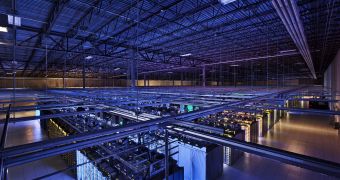Google is launching a quantum computing lab, the first of its kind for Google and one of the first from a commercial entity rather than an academic one. Google is teaming up with the NASA Ames Research Center to tackle this difficult task.
Google won't be building the quantum computer itself, but rather it's buying one from D-Wave, who has already sold a similar system to Lockheed Martin, the first quantum computer ever sold commercially.
What this means is that Google will be able to get to business and actually use the computer and it plans to do just that, aiming specifically at machine learning, a topic close to heart for Google.
"Machine learning is highly difficult. It’s what mathematicians call an 'NP-hard' problem. That’s because building a good model is really a creative act," Google explained.
"As an analogy, consider what it takes to architect a house. You’re balancing lots of constraints -- budget, usage requirements, space limitations, etc. -- but still trying to create the most beautiful house you can. A creative architect will find a great solution," it added.
"Mathematically speaking the architect is solving an optimization problem and creativity can be thought of as the ability to come up with a good solution given an objective and constraints," it continued.
Quantum computers are much better suited for these problems than classical computers. One big advantage is that they can come up with multiple answers to a problem at the same time rather than through an iterative process.
Google has already come up with a number of algorithms that use quantum processing to offer solutions regular computers struggle with. But it now needs to start putting them in practice and see how they hold up.
D-Wave's system has been controversial, with some saying that it's not a true quantum computer, since it's not a universal computer but rather uses a quantum processor that can only implement one quantum optimization algorithm. But it's still enough to see a big performance improvement compared to classical computers.

 14 DAY TRIAL //
14 DAY TRIAL //